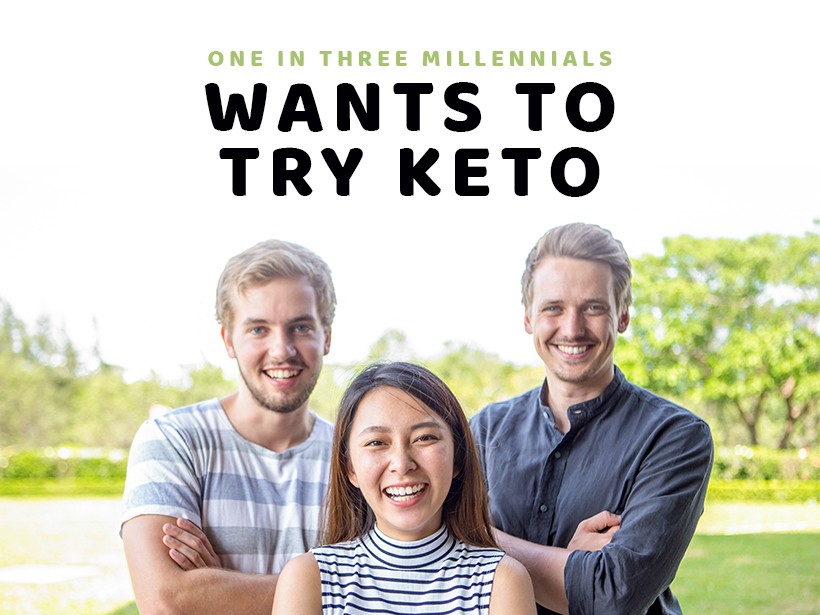Young people seem to be the first to know about new trends, especially when it comes to health and fitness. An INSIDER survey of 1,037 people found that 31.1 percent of millennial respondents are interested in adopting a low-carb diet.1 Plus, 19.3 percent of them specifically want to try keto. Millennials are people born between the early 1980s and late 1990s, so right now they're hovering around the 25- to 35-year-old range. Could going keto positively impact their health down the road?
Keto's history in a nutshell
Surprisingly, the ketogenic diet's origins date back to the 1920s, when it served as an epileptic therapy for children.2 Interest in the diet slackened during the 1940s and 50s with the introduction of new anti-seizure drugs. However, the past decade has seen a huge re-emergence of keto; this is mostly due to a shift in focus from low-fat to low-carb in mainstream culture as scientists and consumers alike have begun to realize that a carb overload contributes to many health issues our society faces. Now just about everyone has heard of the ketogenic diet, even if they aren't quite sure what it is.
This lifestyle involves severely limiting carbs (usually to less than 25 grams per day) while consuming higher amounts of fat and moderate levels of protein. This causes the body to enter ketosis, burning fat rather than sugar for energy. Celebrities and fitness stars from Kim Kardashian to LeBron James have praised keto for its dramatic results.
The survey says…
While the short-term benefits are readily apparent, medical professionals want to learn more about this diet's effects over longer periods of time.3 Keto does tend to limit the consumption of refined sugar and processed food. Sugar addiction is a serious problem for Americans, and the ketogenic diet provides one course of action against it. Packaged foods contain excess sugar, as well as calories and salt, which contribute to rising rates of obesity and high blood pressure.
Is there a target audience for keto?
Since so many young people are keen on trying this diet, is there a specific group of people that could benefit from keto? Yes, doctors used the diet to treat children with epilepsy, but in today's day and age, who is keto's target? According to popular culture, those looking to lose weight, burn fat, and improve athletic performance seem to be the prime audience. The subject of ketosis floats among gyms and social media profiles, particularly those of fitness influencers. Perhaps this is why it has sparked the interest of so many millennials.
NUTRITIONAL DISCLAIMER
The content on this website should not be taken as medical advice and you should ALWAYS consult with your doctor before starting any diet or exercise program. We provide nutritional data for our recipes as a courtesy to our readers. We use Total Keto Diet app software to calculate the nutrition and we remove fiber and sugar alcohols, like erythritol, from the total carbohydrate count to get to the net carb count, as they do not affect your blood glucose levels. You should independently calculate nutritional information on your own and not rely on our data. The website or content herein is not intended to cure, prevent, diagnose or treat any disease. This website shall not be liable for adverse reactions or any other outcome resulting from the use of recipes or recommendations on the Website or actions you take as a result. Any action you take is strictly at your own risk.
- One in Three Millennials Wants to Try Keto - March 27, 2019
- 5 Common Keto Mistakes to Avoid - March 15, 2019
- High Insulin Levels are Toxic to the Placenta and Can Cause Miscarriages - March 7, 2019































